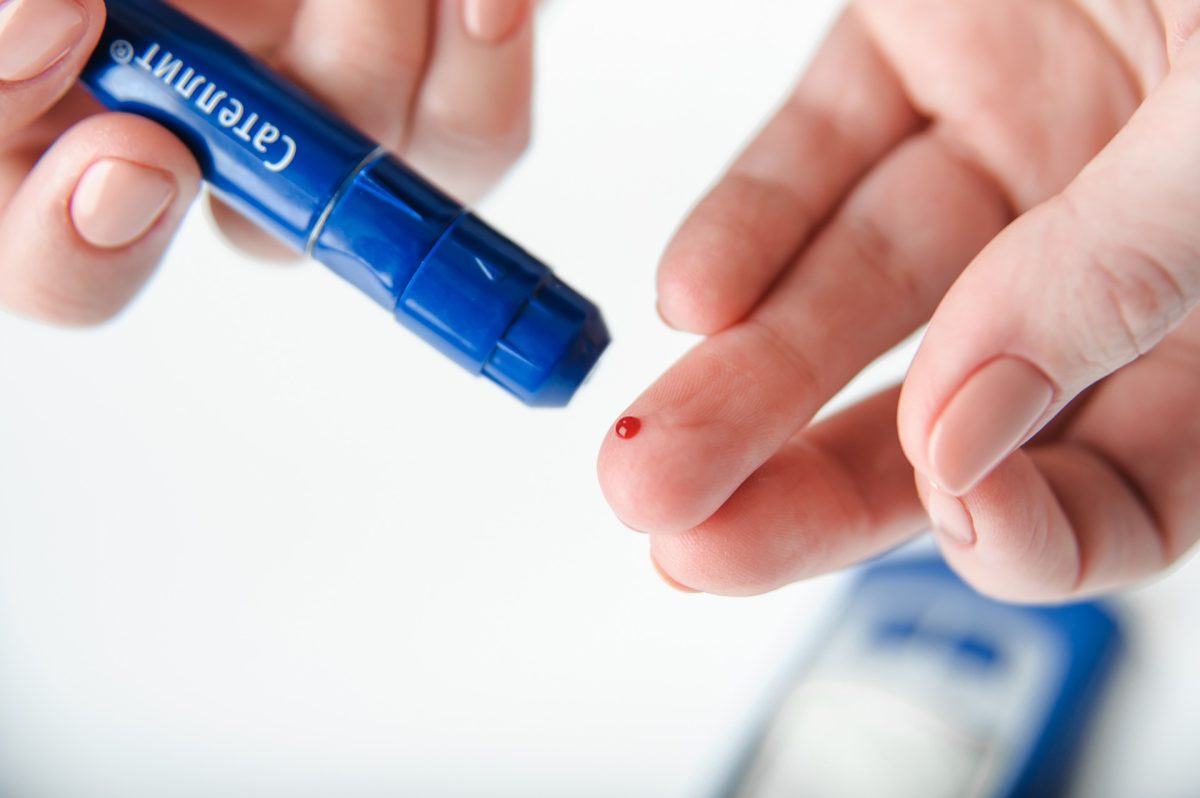Last updated on July 7th, 2023 at 10:41 am
Many medical studies have linked those with Sleep Apnoea to a higher risk of developing Type 2 Diabetes.
3.9 million people in the UK have been diagnosed with Diabetes, and 4 million people have Sleep Apnoea.
1 in 3 diabetes and hypertension patients suffer from OSA (Obstructive Sleep Apnoea).
What is Diabetes?
Diabetes is an incurable condition when your blood sugar is too high.
Type 1 Diabetes – When your immune system attacks cells that produce insulin (a hormone that turns blood sugar into energy), therefore, your body can not make it.
Type 2 Diabetes – When your body does not create enough insulin, or you do not react to it.
Can Sleep Apnoea cause Diabetes?
If you have Diabetes or Sleep Apnoea, it is advised to find out if you have the other, as it is common to have them both.
If you have Diabetes, untreated Sleep Apnoea can make it harder to manage your Diabetes.
More than half of people with type 2 Diabetes have Sleep Apnoea – and a high percentage of people with type 1 diabetes suffer from Sleep Apnoea.
Sleep Apnoea is when the airways become partially or fully blocked during sleep, depriving the airways of oxygen. Causing breathing pauses (Apnoea events) – sometimes more than 30 breathing pauses per hour during sleep. This creates more carbon dioxide in the blood.
If Sleep Apnoea is untreated, the oxygen deprivation can lead to:
- High blood pressure
- Insulin resistance (a hormone in your pancreas that helps with digestion and uses blood sugar as energy)
- Glucose intolerance (blood sugar that your body produces from food and drinks to create energy)
- A rise in blood sugar
- Morning headaches
- Higher chance of heart complications
Can Sleep Apnoea cause Diabetes? It is not a simple yes or no.
However, the likelihood of developing Type 2 Diabetes is high if you have Sleep Apnoea.
Weight can play a part in both conditions, so losing weight can be beneficial for some people.
Patients also struggle with fatigue symptoms, making exercise difficult.
Those with OSA tend to have a bigger neck; excess body weight increases the fat around the neck, increasing the chances of suffering from blocked airways when sleeping.
Obesity makes Type 2 Diabetes and Sleep Apnoea more likely.
You can find out more about weight loss and Sleep Apnoea and which foods can affect your sleep here.
If I have Sleep Apnoea, am I Diabetic?
Untreated Sleep Apnoea has been associated with an increased risk of developing hypertension and a decreased ability to regulate blood sugar levels.
This means that those with Sleep Apnoea are more likely to develop type 2 Diabetes than those without. This is because OSA raises blood sugar levels (glucose).
People who regularly snore and have Sleep Apnoea have been linked to metabolic syndrome alterations. This is a combination of obesity, high blood pressure and diabetes.
If you think you could be diabetic, contact your GP.
Can treating Sleep Apnoea help Diabetes?
There are different OSA severities – Positional, mild, moderate and severe.
For those with positional Sleep Apnoea, a Somnibel Positional sleep Therapy Trainer can be worn.
CPAP (Continuous Positive Airway Pressure) is the most common and effective way of treating Sleep Apnoea. The machine pushes pressurised air through a CPAP mask and tubing to the user’s throat to open the airways.
CPAP and Diabetes
So, can treating Sleep Apnoea help Diabetes? Yes, CPAP therapy can help treat Diabetes symptoms.
Those with both Sleep Apnoea and Diabetes are at risk of developing heart disease and kidney disease.
A CPAP device lowers these risks and can help maintain the correct blood sugar levels (glycemic control).
Studies have shown that using a CPAP device improves sleep, lowers blood sugar (glucose) levels by reducing insulin resistance, and gives people more energy for daily exercise. In turn, reducing the risk of Prediabetes (developing Diabetes).
Sleep Apnoea symptoms
If you think you or your partner has Sleep Apnoea, here are some symptoms to look out for:
- Waking up choking or gasping for air
- Severe or frequent snoring
- Morning headaches
- Low libido
- High blood pressure
- Frequent urination during the night
- Mood swings
How do you know if you have Sleep Apnoea?
If you have Sleep Apnoea symptoms, contact your doctor.
If they think you may have Sleep Apnoea, they may refer you to the sleep clinic, where you will take a simple sleep study.
Please note that current waiting times for a sleep test at a sleep clinic may vary from upwards of two months.
We understand that waiting for a test can be stressful and counterproductive to resolving your symptoms.
However, you can test with us by taking an In-Home Sleep Test.
An In-Home Sleep Test works by monitoring your body position, snoring intensity, blood oxygen levels, heart rate, body movements, and Peripheral Arterial Tone (PAT).
You receive your accurate results within 7-10 working days.
If your results come back positive for Sleep Apnoea, our experienced NHS Sleep Technicians will advise the best treatment for you.
If you are recommended CPAP therapy, you can find our equipment here.
For more information on Diabetes, visit – www.diabetes.co.uk
If you need any further help, please contact us.


